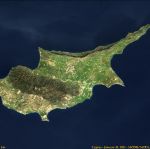Actor’s Words Spark Debate on Cyprus 1974
"I had one day of military service left. Just then the 'Cyprus Peace Movement' [dubbing for Turkish operations in Cyprus] took place. They sent me to Cyprus from Mersin. I was tasked in the ‘cleaning-up’ operation, the most grim and bloody part of the war. I told the commander, ‘I cannot kill anyone, I am an actor.’ He said, ‘There’s no art here. This is real life, war. When I tell you to, you will kill.’ The first person I killed was a (Greek Cypriot) kid of 19 years, he had been taken prisoner. When I pointed the gun at his head he spat in my face. I hit him in the forehead and he died. Later, I killed nine more people in combat. After each death, I returned to camp and cried, but the next day I killed again. It’s always in my dreams. I underwent psychotherapy for a long time. I still can’t eat meat or bear the sight of blood. Then I think of the kids I killed, the smelling bodies.”
Atilla Olgaç, a respected Turkish theatre and film actor, made this shocking statement in a talkshow on live television last week (22 January). When a heated public debate started after his shocking statements, the actor claimed that he had been talking about a new film script, but that the adverts had interrupted what he was saying.
War crime investigation
However, his explanations either in Turkey, or Greece and Cyprus, where his statement has been covered widely in the media, has been generally found unconvincing.
The Bakırköy district prosecutor in Istanbul has opened an investigation into whether the actor committed a war crime with regards to the Geneva Convention relative to the Treatment of Prisoners of War. Turkish human rights activists have called for his prosecution, as well as a revelation of who his commander was.
Olgaç has said that he does not remember the name of his commander.
Southern Cypriot reactions
The Southern Cyprus government spokesperson Stefanos Stefanou said that the government had decided to go the European Court of Human Rights (ECHR) and the Council of Europe’s Committee of Ministers with regards to the Turkish actor’s statement.
The Autonomous Committee for Missing Persons in Cyprus made a statement, too:
“We would like to repeat our appeal to all those who, in 1964 or 1974, acted as individuals or in groups, and who have knowledge about such events, whether they are living in Cyprus or elsewhere, to come forward, contact the committee and help us with our difficult task.”
The committee has members from both Northern and Southern Cyprus and researches the fate of those missing on both sides. According to the committee, the remains of 110 lost people have been found and identified so far.
According to the BBC, around 1,500 Greek Cypriots and 500 Turkish Cypriots are still missing.
"We must learn lessons from the past"
Northern Cyprus Prime Minister Ferdi Sabit Soyer also touched on the subject when interviewed by journalists on the Northern Cypriot state channel BRT.He said:
“A theatre actor has made a random statement. And an academic made a statement explaining how 32 Cypriot Turks were killed. There is pain on this soil, we cannot forget this, but we cannot found a tomorrow on such a basis. If we want to create a future, I do not say that we should forget the pain, but we should learn lessons from it and move towards a framework of humans, collaboration, dialogue and mutual love.”
The academic he referred to was Oxford University’s former history professor Ronaldos Kacaunis. He had told the Southern Cypriot Haravgi newspaper that, 45 years ago, 32 civilian Cypriot Turks from Mağusa were “taken somewhere, killed and buried in a mass grave” by Cypriot Greeks.
Call for investigation into murders of civilians
Izzet Izcan, party chair of the United Cyprus Party (BKP) called for a prosecution of all those who killed civilians on both sides.
In a written statement he said that extreme nationalism on both sides had led to murders of Cypriots. He called for an investigation into the murders in the villages of Atlılar, Sandallılar, Muratağa, Dohni, Balıkesir, Değirmenlik, Paşaköy, Köfünye and many other places.
An investigation and prosecutions would allow the two communities on the island to rebuild relations. He added that actor Olgaç had “admitted a war crime” and called for his prosecution, too. (TK/AG)




